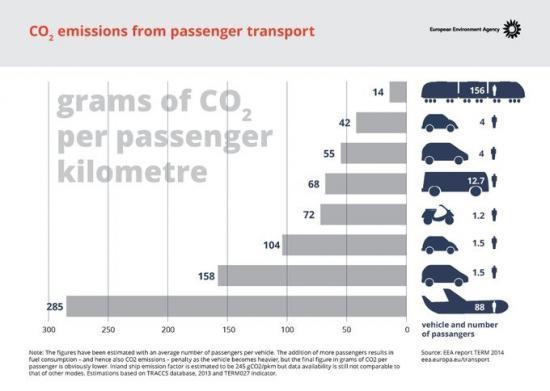'green-watching' - Businesses Of All Sizes Should Follow New Climate Reporting Regulations
31st March 2022

From 6 April, Britain's biggest companies must reveal the full impact of their operations on the climate in their annual reports. With the UK pledged to reach net zero by 2030, smaller companies should also reveal their green plans, says ParcelHero.
The UK is set to be the first G20 country to legally require its leading companies to make full climate disclosures. The new Climate-related Financial Disclosure (CFD) regulations come into force on 6 April. Britain's largest companies must now disclose all climate-related financial information in their annual reports and show they are assessing and managing the risks of climate change.
The leading international delivery company ParcelHero says it's good news that Britain's biggest companies must now measure the impact of their operations on the world’s climate. However, so far, this only applies to around 1,300 of the UK’s leading companies and financial institutions. ParcelHero believes smaller companies may well face similar regulations soon, and should start reporting their climate impact information now, while the option is still voluntary.
ParcelHero’s Head of Consumer Research, David Jinks M.I.L.T., says: ‘Some of the country’s leading companies had been accused of "green-washing" in the past - putting a good spin on their environmental activities, but not disclosing the full picture. Under the new rules, "green-washing" will be replaced by "green-watching", as their climate-related activities will come under far greater scrutiny.
‘The new regulations will demand companies list the principal climate-related risks and opportunities created by their operations and reveal the targets and KPIs they will use to manage these risks.
‘So far, the CFD regulations will impact around 1,300 organisations, including many of the UK's largest traded companies, banks and insurers, as well as private companies with over 500 employees and a £500m turnover. However, the UK is pledged to a target of zero greenhouse gas emissions by 2030. That’s a tough ask. We can expect to see the Government spread the net of its new CFD regulations wider over the next couple of years.
‘Back in November 2020, the Government announced that, while progress was being made in climate disclosures, voluntary uptake was "well below expectations". It announced a plan for “fully mandatory climate-related financial disclosure requirements across the UK economy by 2025.” We can expect the continued roll-out of these plans.
‘It’s likely that the next to be included will be listed companies and private businesses that meet two of the following three criteria: a turnover of more than £36m; a balance sheet total of more than £18m, and/or more than 250 employees.
‘If the UK is to reach net zero by 2030, SMEs will have to be key players. Far smaller companies will feel the scrutiny of Government. In many ways, this is likely to be positive for SME businesses. By looking at how the new CFD rules work, they can not only start to address green issues, but see a framework that shows how every aspect of their business is addressing climate change issues.
‘The CBI says: “Climate-related financial disclosure rules might seem a lot for SMEs to tackle, but companies can succeed if they:
Take it in phases
Get used to gathering the data
Tackle those issues they know they can achieve at the beginning and be aware of those issues which are in the pipeline.”
‘Many companies, whether SMEs or multi-nationals, are constantly seeking funding and investment opportunities. CFD-style reporting brings transparency to a company’s climate plans and ensures that they are measured and monitored in a structured way. Investors value this disclosure as it enables them to invest more confidently.
‘Of course, one of the chief ways in which many manufacturers and retailers can reduce their impact on the environment is by working with their logistics and supply chain partners to reduce the impact of their operations on the world’s climate.
‘Just this month, Amazon announced it is launching five DAF electric Heavy Goods Vehicles (HGVs) in its delivery fleet for the first time in the UK. The 37-tonne fully-electric vehicles will prevent 170 tonnes of CO2e from being emitted. Similarly, XPO Logistics is taking delivery of 23 bio-LNG trucks and 53 trucks fuelled with hydrotreated vegetable oil (HVO), reducing tailpipe carbon emissions by at least 80% and NOx emissions by 30%. The parcels giant Hermes rebranded as Evri this month, with a focus on new electric and biomethane vehicles and other solutions to push towards the brand's 2035 net-zero goal. It’s already using 100% renewable electricity across all its operations.
‘Our recent report, “Which is Greenest, Home Deliveries or Traditional Shopping?”, brings together academic research from many different sources and shows conclusively that ordering online is far more environmentally friendly than shopping by car.
‘As long ago as 2009, a study by Heriot-Watt University revealed definitively that successful first-time home deliveries of non-food products generate significantly less grammes of CO2 per kilometre than a dedicated car shopping trip. The paper found that a typical urban shop by car for multiple items generates 1,069 grammes of CO2 per km per item, and a dedicated car trip for a specific item 4,274 grammes of CO2 per km. In contrast, a successful first-time home delivery creates just 181 grammes of CO2 per km per parcel.
‘In fact, the research found that a customer shopping by car would have to buy 24 non-food items to reduce their equivalent emissions to those of a home delivery.
‘To discover more details about research into home deliveries’ carbon footprint, and the potential impact of the Government’s planned new green tax on home deliveries, read the full ParcelHero study at: https://www.parcelhero.com/research/greenest-study
